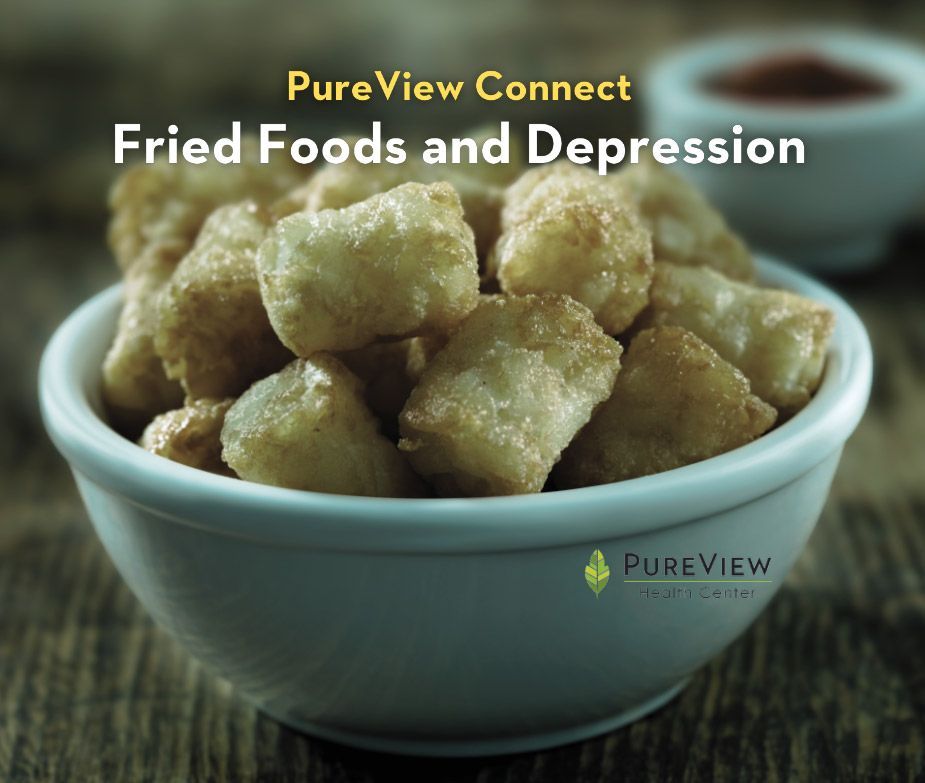Understanding the Link Between Fried Foods and Depression

It's probably no surprise that what we eat can have profound effects on our mental health. In fact, a growing body of research suggests that diet, specifically the consumption of fried foods, could be linked to the incidence of depression.
Let's take a look at the science behind this possible connection, exploring why fried foods may contribute to depression and what we can do to maintain both our physical and mental health.
Understanding Depression
Before we delve into the connection between fried foods and depression, it's important to understand depression itself. Depression is defined as a common, but serious, mood disorder characterized by persistent feelings of sadness, hopelessness, and loss of interest in activities. It can significantly interfere with a person's daily life, affecting how they feel, think, and handle daily activities such as sleeping, eating, or working.
The Science Behind the Connection
So, how do fried foods fit into this picture? The answer lies in the way these foods are prepared and the impact they have on our bodies.
First, let's talk about Inflammation. Fried foods are often high in trans fats. Trans fats have been shown to promote inflammation in the body. The result? Chronic inflammation can disrupt the normal functioning of our immune system and has been linked to numerous health problems, including depression. In fact, studies have shown that people with depression have higher levels of inflammatory markers in their bodies.
Gut Health. There's a growing body of research suggesting a strong link between gut health and mental health, often referred to as the gut-brain axis. Fried foods, due to their high fat content, can disrupt the balance of bacteria in our gut. This imbalance, known as dysbiosis, can negatively affect our mental health, leading to symptoms of depression.
Blood Sugar Levels: In addition to being high in trans fats, fried foods are typically also high in simple carbs, which can cause spikes and crashes in blood sugar levels. These fluctuations can lead to mood swings, fatigue, and symptoms of depression.
Evidence from Research Studies
Several studies have found an association between the consumption of fried foods and the risk of depression. For instance, a study published in the journal "Molecular Psychiatry" found that people who ate the most fried food had a 37% higher risk of depression compared to those who ate the least number of fried foods.
Another study, published in the "Public Health Nutrition" journal, found a similar connection. The study showed that people who consumed fast food, including fried food, were 51% more likely to develop depression than those who ate little to no fast food.
Balancing Diet for Mental Health
While it's pretty clear that fried foods can have a negative impact on mental health, it's important to remember that diet is just one factor in depression. Other factors like genetics, environment, and lifestyle can also play a significant role.
That said, adopting a balanced, nutritious diet can be an essential part of managing mental health. This means focusing on a diet rich in fruits, vegetables, whole grains, lean proteins, and healthy fats, while limiting intake of fried foods, sugary drinks, and processed foods.
Conclusion
While we often consider the physical health impacts of our diet, the potential effects on our mental health are equally important. The connection between fried foods and depression underscores the complex relationship between what we eat and how we feel. By making conscious, healthy food choices, we not only improve our physical health but also support our mental well-being.
Remember, if you're struggling with depression, it's important to seek help from a mental health professional. They can provide guidance and treatment options, which may include dietary changes along with other interventions. For more information on PureView's Behavioral Health services call us at 406-457-0000 or visit our website.
Sources:
- Guo, X., et al. (2021). Fried food consumption and risk of depression: a meta-analysis. Molecular Psychiatry. https://doi.org/10.1038/s41380-021-01311-w
- Sánchez-Villegas, A., et al. (2012). Fast-food and commercial baked goods consumption and the risk of depression. Public Health Nutrition, 15(3), 424-432. https://doi.org/10.1017/S1368980011001856
- National Institute of Mental Health. (n.d.). Depression. https://www.nimh.nih.gov/health/topics/depression/
- Micha, R., & Mozaffarian, D. (2009). Trans fatty acids: Effects on cardiometabolic health.









